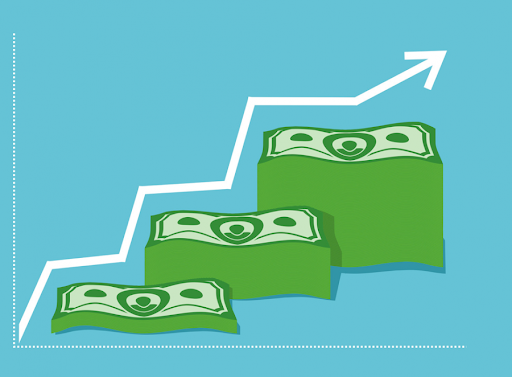In America, one is expected to take advantage of the upward social mobility our wealthy democracy theoretically affords. In stories, we may be presented with characters who work minimum wage or service jobs, but invariably, these jobs are a starting point. The character in question will go to college, strike it rich, or marry well. In our cultural narrative, it is a sign of failure of imagination or skill for an adult to remain in a so-called ‘dead-end job.’ No wonder parents warn their children if they don’t study hard, they’ll work at McDonald’s. Or bagging groceries. Yet, in our hour of direst need as a nation, it is the cashiers and grocery baggers who rank beside our doctors as essential workers. It is time we treat all essential workers with more respect. It is time that all essential workers are paid a living wage.
I believe many Americans are comfortable with the poverty of so-called “unskilled laborers” because our cultural narrative suggests that they earned suffering. If they truly wanted a healthy life, then they should have worked harder. They should have ‘picked themselves up by their bootstraps.’ Nevermind that economic and social barriers may trap someone in poverty, and that minimum wage earners comprise an integral part of the workforce.
As much as we tout values of equality, we are a classist nation. The economic success of this country is founded, yes, on individuals who worked hard and achieved the American Dream. But it is also founded on the economic exploitation of large portions of the population.
An increasing number of low income workers must work multiple jobs in order to afford to live. Increased hours typically increase stress levels, which in turn may increase the risk of heart disease. Furthermore, any parent who must work obscene hours has a) less time to care for children and b) less energy to care for children in those remaining hours. One may argue that people at all income levels work obscene hours, but at least doctors are rewarded with wealth and may thus provide greater resources to their children.
Costs saved by businesses who pay low wages are instead paid by the millions of Americans who earn low incomes, and who suffer detriments to their quality of life in comparison to the rest of the developed world. Reduced quality of life, furthermore, can harm the next generation. No child should be held back from opportunity, let alone health, by the economic station of their parents.
The purpose of a minimum wage is that someone working full-time should be able to eat, pay rent, and live comfortably. Throughout much of America, this is no longer a reality, which means the federal minimum wage of $7.25 an hour has failed. Even in Massachusetts, an increased minimum wage does little to cushion the blow of illness if one lacks health insurance.
Ultimately, raising the minimum wage would benefit both the consumer economy and society as a whole. On average, individuals in lower income brackets tend to spend more of their household income outright, rather than saving or investing it. As a result, wealth which would otherwise languish in the coffers of a few remains in circulation, and among people who would genuinely benefit from having more money.
Studies find that wealth is proportional to happiness up to between $70,000 and $100,000 of annual income, after which happiness plateaus. There is no quantifiable difference in happiness between a billionaire, a millionaire, and someone making six figures. There is a quantifiable difference in happiness between someone who can and cannot afford healthy meals, health insurance, and rent.
When they get sick, essential workers deserve to have treatment without facing bills and bankruptcy. These same people who currently, and at risk to their own lives, provide their fellow Americans with food and other necessities deserve enough money to care for themselves and their families. It’s time we raised the minimum wage.

